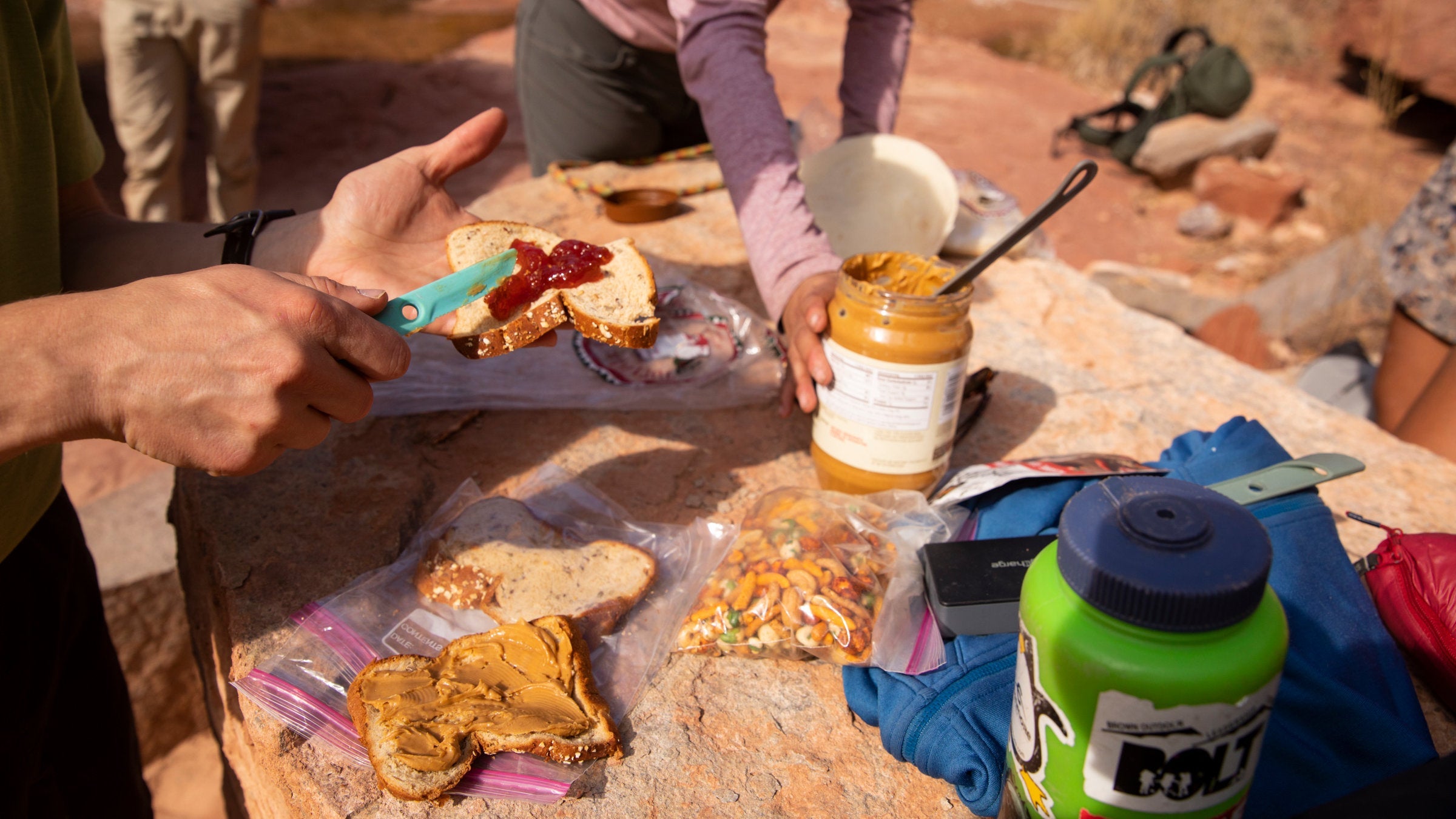I am not going to stand here in front of God and Backpacker‘s readers and pretend I always, or even usually, eat healthy on my trips. I eat loose from my hipbelt pockets while I hike and wolf down instant ramen like I’m a broke college student and rent is due. I once stuffed an entire box of Honey Buns into a helicopter’s cargo box during an Editors’ Choice trip to Banff National Park (bad idea, those things do not travel well).
But as I’ve gotten older and words like “hypertension” and “arteriosclerosis” have gradually entered my peers’ vocabularies, I’ve gotten more and more interested in finding a compromise between convenience and health when it comes to meal planning for my hikes and backcountry tours. If you’re on the same path, then this roundup of our best hiking nutrition stories is for you. The following stories are a primer in how to eat on a hike, from the basics of nutrition to busting some of the most persistent dietary myths. Read on to learn more.
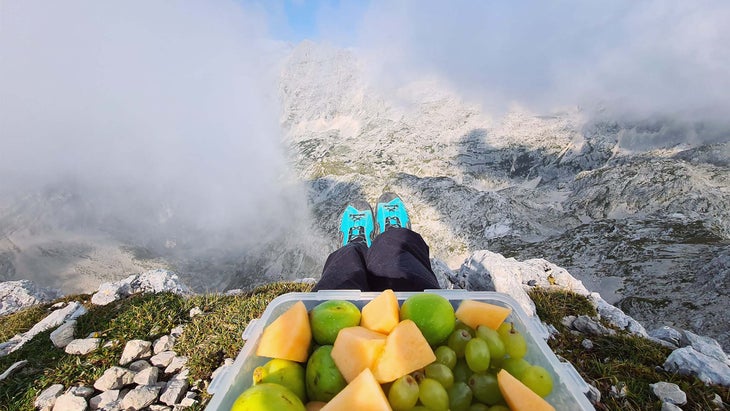
From processed ingredients to organic to specialty diets, it’s easy to get blinded by science when it comes to nutrition. The reality: Figuring out how to eat better on a backpacking trip doesn’t need to be complicated. We break down the basics of nutrition—eat for recovery, keep an eye on your electrolytes, and, whatever you do, don’t skip breakfast—in this easy explainer for beginners.
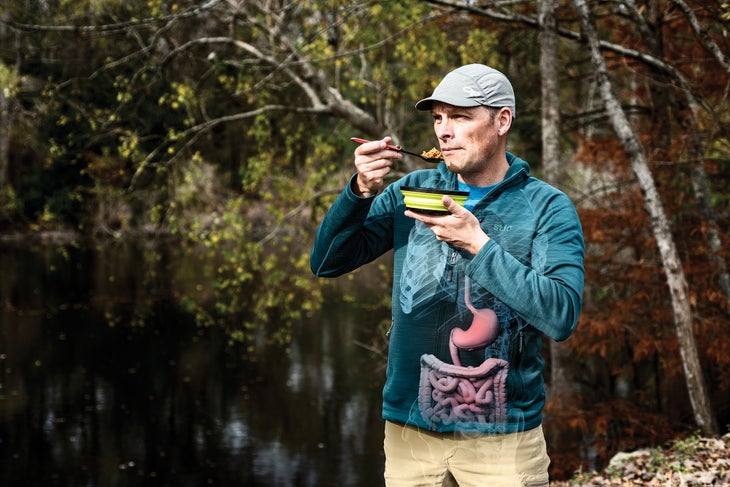
Sometimes the effects of a poor diet take a while to hit. Sometimes, however, they kick in faster, leading to problems from skinny legs to trail diarrhea. If you’re planning on going on a long hike—think two weeks or more—you need to keep a much closer eye on what you’re consuming than you might on a weekend trip. We consulted two backpacking dietitians to understand how the food hikers eat helps or hinders them.
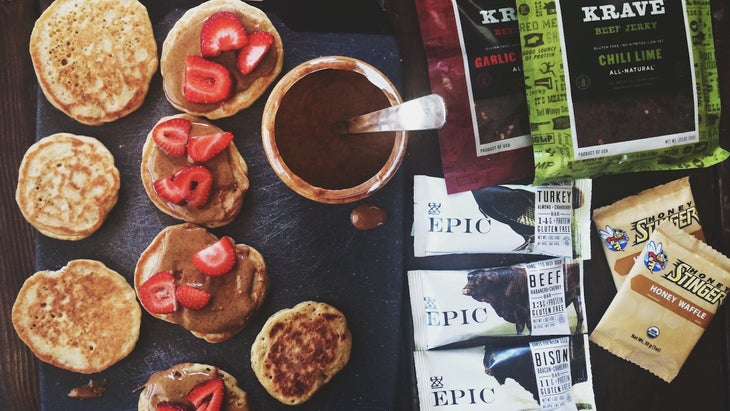
There are few sciences as rife with misinformation as nutrition. Spend an hour googling, and you’ll find contradictory information, questionable supplements, and even downright dangerous diet plans on offer. Don’t get fooled: Learn to tell the BS from the valuable information with this round-up from Corey Buhay.
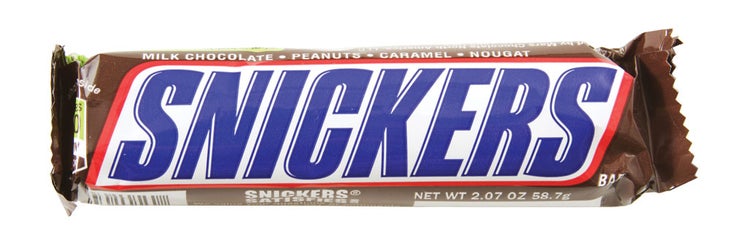
Let’s be real: Few to none of us are hiking with a pack full of fresh fruits and vegetables, or even a lot of dehydrated ones. Getting our meal bag down to a manageable size while still carrying enough calories to fuel days of hard hiking means making some compromises, from carrying processed food to prioritizing raw carbs over vitamins and minerals. How do your favorite hiking treats stack up? We asked a dietitian to evaluate everything from instant ramen to Pop-Tarts on the value to hungry hikers.
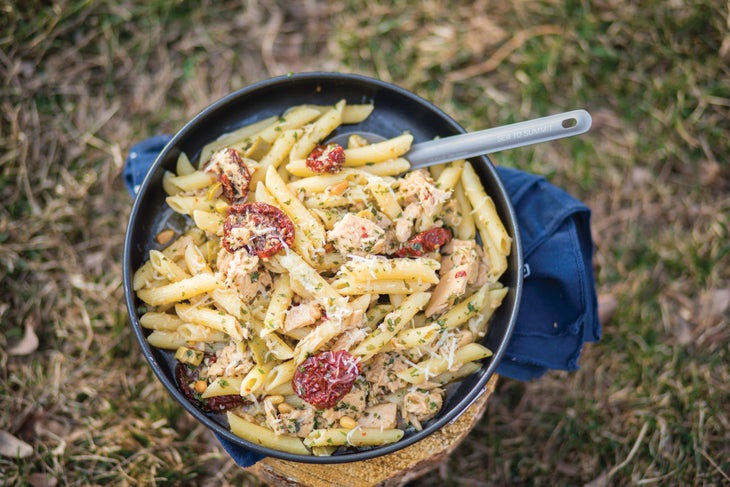
If you’re hoping to build up your hiking fitness, then protein is non-negotiable. It helps rebuild the day-to-day wear and tear you incur and locks in the muscular gains you earn over days and weeks on the trail. Protein bars and shakes are easy, but these are easier, cheaper, and tastier ways to get your daily dose.


